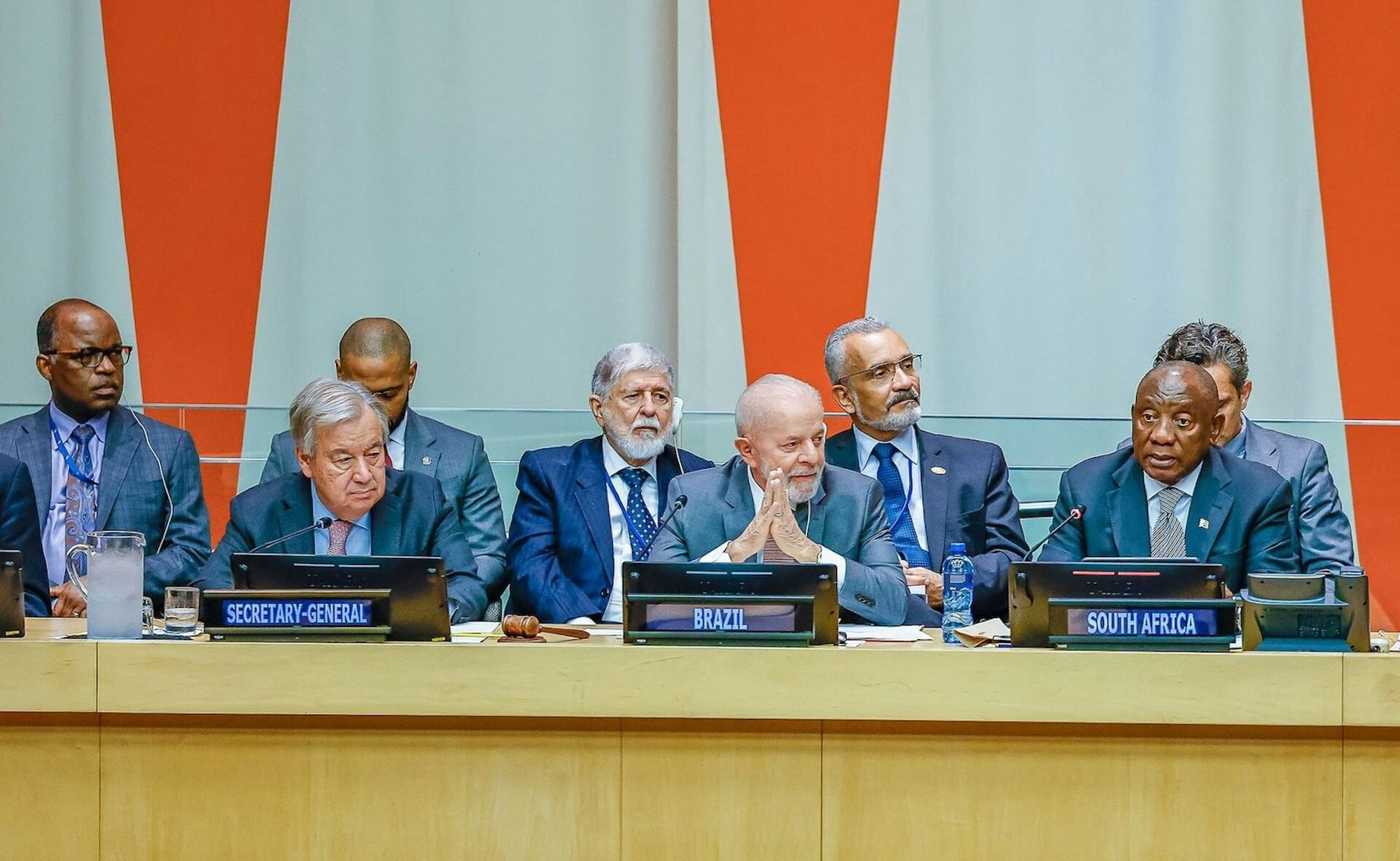The G20 Leaders’ Summit takes place on November 18 and 19, in Rio de Janeiro, with the presence of leaders of the member countries, plus the African Union and the European Union. The Russian president, Vladimir Putin, will not attend. Putin faces arrest if he travels abroad on a warrant accusing him of war crimes in Ukraine, issued by the International Criminal Court, and will be represented by Foreign Minister Sergey Lavrov.
In a simple metaphor, Brazil’s role in the leadership of the G20 can be summarized as “drying ice”. This is not the result of mistakes made by Brazilian diplomacy under the current government. Any country with the same status that Brazil enjoys in the international system would suffer the same limitations in an era in which great powers, who possess economic and military power, prioritise their interests. The country is considered a middle power, with a certain regional influence, but no presence on a global scale.
We’re not just in the world of America First. China First, Russia First, EU First: each looking after itself instead of trying to establish a minimum of coordination between them on issues such as global warming, trade and international security. It’s not easy for middle powers to be able to talk big with the rest of the world.
Even so, regional powers can influence specific elements of relations between countries and, therefore, of the global order. Compared to India’s presidency of the G20 the previous year, Brazil has made notable progress on social issues, having put the Global Alliance Against Hunger and Poverty on the agenda, which is in line with Agenda 2030 of the Sustainable Development Goals 1 (poverty eradication) and 2 (zero hunger and sustainable agriculture).
A fund to combat disinformation
Under Brazilian leadership, the debate on combating climate change has also gained even more priority, with an emphasis on optimizing funds for this global challenge, including the idea to be presented in Rio de Janeiro of forming a fund to combat the spread of disinformation in the sector.
These points contrast with the lack of progress in the debates on the much-needed global governance reforms. Success requires dialogue with the Russians, the Americans, Chinese and Europeans.
With Trump back in the White House, Moscow at war with Ukraine and Beijing grappling with internal economic problems, only the EU – at least for as long as it isn’t captured by ultra-right-wing forces – tends to show the slightest willingness to join a global action agenda.
Nationalisms overshadow global alliance
That’s unless the interests of the major powers change even more as a result of Trump 2.0’s actions. For example, in an era of growing nationalism, what’s the point of supporting a global alliance to fight hunger and poverty if countries seek unilateral or bilateral solutions, partnering with regional allies or those with whom they have greater ideological affinity? China, whose economic dimension could fill the void left by the United States in multilateralism, is not interested in playing the role of articulating the provision of global public goods either.
The EU and other European political actors, notably the UK, will have to devote more resources to their own security. This is because Trump has already shown himself to be in favor of an understanding with Russia in the war against Ukraine and is seeking to reduce American commitments within the framework of the North Atlantic Treaty Organization (NATO), thus putting pressure on Europeans to put more money into military spending.
Superficial legacy on climate
On the climate-environment issue, whatever Brazil’s legacy at the G20, the risk of superficiality is even greater. Again, this is because of the changes in sight in the configuration of the power game between the great powers and the interests of other members of the bloc. For example, it is certain that Trump will once again withdraw the United States from the Paris Agreement, which should nullify any effect of the energy transition partnership that Lula will sign with Joe Biden during the G20 meeting.
Furthermore, India – which has flirted with great power status due to its nuclear weapons and robust economic growth in recent years – is essentially dependent on fossil fuels and shows no sign of letting go of this. The same reasoning applies to other G20 regional powers such as Indonesia and Mexico.
So, barring a miracle, the Brazilian presidency of the G20 – touted as an instrument to demonstrate Brazil’s ability to play an active role in reshaping the global order in the 21st century – is likely to end with limited results, as other members of the bloc turn a deaf ear on President Luiz Inácio Lula da Silva’s desire to lead the world in development.
Lula doesn’t even have the support of Brazil’s main historical partner in the G20, Argentina. Under right-wing leader Javier Milei, Buenos Aires rejects everything Brazil stands for. If we can’t even lead our neighborhood, it’s chimerical to claim an active role in shaping the global order beyond specific issues.
Vinícius Rodrigues Vieira is an associate professor of Economy and International Relations at Fundação Armando Alvares Penteado (FAAP)
This article was originally published in The Conversation. Read the original article here: https://theconversation.com/brazilian-presidency-of-the-g20-is-likely-to-end-with-limited-results-243837





